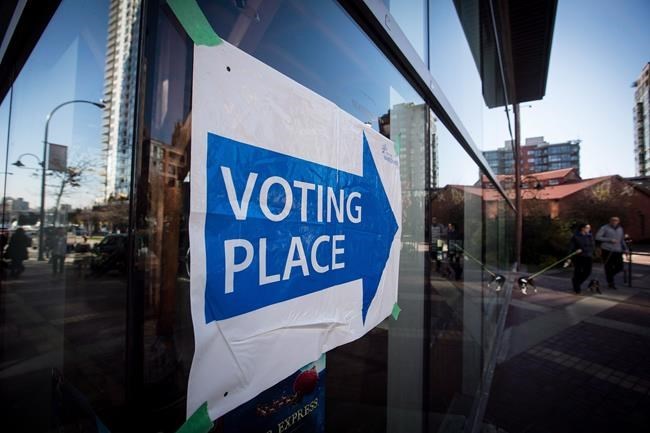Elections B.C. is warning that we might not know who won the election until weeks after polls close tonight, with Nov. 16 set as the goal for delivering final results.
“Never before have so many voters voted before election day in British Columbia electoral history,” chief electoral officer Anton Boegman said at a news conference Friday, as he explained how the election agency has prepared for counting at least half a million mail-in ballots by hand.
That process won’t start until Nov. 6, almost two weeks after election day, which is required under the Elections Act to prevent voter fraud.
The final count usually lasts three days, but Boegman said it could take longer because of the unprecedented number of vote-by-mail and absentee ballots. He did not have an estimate for how much longer it could take.
“Our commitment is to do the count as quickly as we can,” Boegman said.
Elections B.C. will let the public know on Nov. 5 how many certified mail-in ballots were received, which could give a more accurate picture of how long counting will take.
In ridings where the candidates are tied or extremely close, a judicial recount can be requested for up to six days after the final count. Each district returns its writ of election to the chief electoral officer by Nov. 16, after which the results are considered final.
More than 1.1 million votes have been cast, with 681,055 people voting in advance polls.
Elections B.C. has received about 478,000 vote-by-mail packages, which is about 66 per cent of the 724,279 mail-in voting packages requested, Boegman said.
That doesn’t include packages currently in the postal system and those that will be dropped off in person at electoral offices or at voting stations.
Elections B.C. is also expecting about 20,000 absentee ballots.
In the 2017 provincial election, about two million people voted. About 6,500 ballots were cast by mail.
The big question this year is how mail-in and absentee ballots will affect the final count, especially for close races.
“Vote-by-mail is always going to be a wild card,” Boegman said, noting that vote-by-mail ballots have increased 7,200 per cent over 2017.
Votes cast on election day and in advance polls, called “live” ballots, will be counted on election night. Preliminary results will be available at results.elections.bc.ca. The first results are expected about half an hour after polls close at 8 p.m.
Mail-in ballots and absentee ballots are counted by hand, because some voters who received their voting packages before candidates were confirmed had to write in the name of their chosen candidate.
All absentee and mail-in ballots are sent to the voter’s district and screened to ensure the voter is registered and eligible to vote and that someone who voted by mail or absentee ballot didn’t also vote on election day.
There are teams for the task in every electoral district. The counting teams are led by the district electoral officer and their deputy.
The count for the mail-in and absentee ballots could begin at different times in different ridings, which means results will be staggered.
Boegman said it’s hard to predict whether more advance voting and mail-in ballots will become the norm, or whether this election is a one-off because of the pandemic. He said the Elections Amendment Act, which was passed in 2019 but has not yet come into force, could allow for the use of electronic voting machines to tabulate mail-in and absentee ballots, which could speed up the final count.
Mail-in certification envelopes will not be considered valid if they do not contain a ballot, or contain multiple ballots from the same household. In those cases, the certification envelope is set aside and the vote is not counted.
Elections B.C. said physical distancing will be in place between counting teams and party scrutineers, who won’t be hovering over each other as in previous elections.
Elections B.C. has a staff of just under 100 that swells to as many as 25,000 during elections.
People who sent a ballot by mail will not be given notice that their ballot has been received, but voters who mailed their ballots by Oct. 17 should be assured their vote will make it to Elections B.C in time, Boegman said.
Canada Post will be delivering ballots until the close of voting Saturday, and elections officials will be at Canada Post’s distribution centre in Richmond to ensure any mail-in ballots received by 8 p.m. Saturday will be counted.
Voters have until 4 p.m. Saturday to request a mail-in package from a district electoral office. Mail-in ballots can be dropped off at a district electoral office, a voting place and some Service B.C. locations before 8 p.m.
Anyone looking for ballot drop-off locations can go to elections.bc.ca/voting/how-to-vote-by-mail or call Elections B.C. at 1-800-661-8683.



